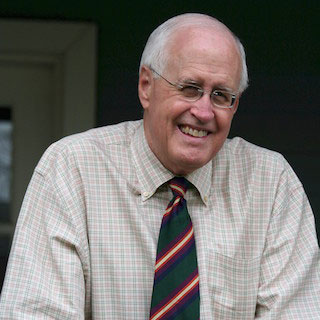It hadn’t occurred to me that the political methodology of Donald Trump would see daylight at the 79th General Convention! But, then, I hadn’t looked at a proposal for reconstructing how the church speaks of God and man. And of woman. Woman in particular.
The Trump methodology: First you blow it up; then, with whatever scraps and pieces are lying around, or such new materials as are nearby, you make the new product look the way you want it to look.
The House of Deputies Special Committee on Sexual Harassment and Exploitation has in hand the general if not total purging from Episcopal liturgy of such language as Father and Lord and King, and man, and he and him, and the rest. It seems to the special committee that the prayer book’s “predominantly masculine language…limits our vision and creates a context in which male dominance and power is considered normative, implicitly providing theological support for exploitation and harassment of women.”
I am sorry to report, whether you love Trump or (as is likelier in a General Convention context) you would prefer to adorn his person generously with tar and feathers, the blow-it-up-and-start-over approach doesn’t work with liturgy and worship.
I wouldn’t want it thought that anyone at this gathering disparages the aim of the 47-member, all-female task force that women might, under the mercy and justice of God, gain such measure of respect and dignity as blithering idiots have denied them.
Nevertheless, dynamiting the historic Christian understanding and deployment of religious language is no plausible answer. It is as much autocratic gesture as anything else, the in-your-face assertion of an intellectual claim for which no proof seems required: namely, that speaking of God as Father somehow disenfranchises those who might relate better to a non-“male” God.
The special committee asserts that “Use of expansive God-language enables Christians to claim freedom and dignity as human beings created in the image and likeness of God.” Well, maybe; and again, maybe not. The claim is large and dramatic, requiring, I should think, careful, patient argumentation, not just forceful assertion of a character that invites retort and denial. The special committee doesn’t attempt to persuade. It announces; it proclaims; it declares—in , forgive me, ladies, language of no special delicacy.
That brings us to the particulars the report-writers recommend: the liturgical bowdlerizing of language proceeding, as we understand it, from the mouth of God, or His inspired servants. “I am the Lord thy God…” “And the Lord said unto Moses…” “O come, let us sing unto the Lord…” “Our Father which art in heaven…” Anybody got a logical way around such? And the point of finding such a way would be…?
As I say, no theological predicate supports the task force’s demand for actions that would quickly set Episcopalians once more to brawling with each other in their shriveled, shrunken state; pale shadow as they are of the great church built by frontier bishops with prayer books in their saddle bags and saloon tables for altars. The Episcopal Church, we seem to forget, used to do things a little differently than it does them today; and, “male, sexist” language or no, did them with considerable effect.
As for current controversies over “sexist” language, numerous Episcopalians will seek and find forgiveness for checking their watches and Facebook pages, the longer the uproar continues. If the territory looks familiar, it should. Americans have for decades journeyed along this same road, debating the effects of language on power politics. We will surely travel it again, the issue being irresistible and unresolvable at the same time.
How unresolvable? The great humanist Jacques Barzun, in his final book, From Dawn to Decadence: 500 Years of Western Cultural Life, provides judicious guidance. Barzun, ranging freely across our civilizational terrain, argued the unwisdom of surrendering “a long-established practice, familiar to all, without reviewing the purpose it has served.” Plainly, he says, the offending word man has meant “human being.” “Its Sanskrit root man, manu, denotes nothing but the human being, and does so par excellence, since it is cognate with the word for ‘I think.’” “[I]t is the only convenient generic term when it is not misinterpreted.”
“[I]t is hardly plausible,”’ Barzun concluded gravely, “to think that tinkering with words will do anything to enhance respect for women among people who do not feel any, or increase women’s authority and earnings in places where prejudice is entrenched.”
It will instead….let’s see. Maybe stir the great mass of Episcopalians to wonder what goes on around here? Yes: what goes on with a church seemingly fonder of agitating ant hills than of broadcasting the Good News of a Father who gave his only begotten Son, to the end that all that believe on him should have everlasting life?
William Murchison, a lay deputy from the Diocese of Dallas, is a syndicated columnist.
